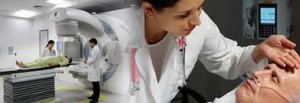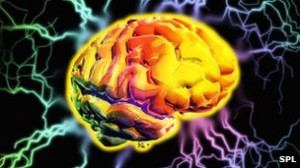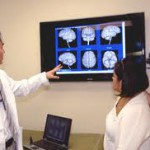 All patients with epilepsy have “fits”, but not every patient who has suffered a “fit” can be declared an epilepsy patient. To be diagnosed as a case of epilepsy, a patient must have suffered at least two unprovoked fits.
All patients with epilepsy have “fits”, but not every patient who has suffered a “fit” can be declared an epilepsy patient. To be diagnosed as a case of epilepsy, a patient must have suffered at least two unprovoked fits.
Epileptic “fits” or “seizures” occur as a result of an occasional, sudden, excessive electrical discharge from cells in the brain. It is like an “electrical short-circuiting” or an “electrical storm” in the brain cells. Epilepsy can result from an injury to the brain, infection in the brain or any other insult to the brain. Many times there is no obvious cause for epilepsy, when it is believed to be due to hereditary abnormalities.
Epilepsy can be treated and controlled
 Epilepsy is a condition that can be well controlled in a vast majority of patients. However, 5-10% patients do not achieve adequate seizure control despite trial of best anti-epileptic drug combinations. Such patients are categorized as having refractory or intractable Epilepsy. These patients require special evaluation for treatments other than medical management alone.
Epilepsy is a condition that can be well controlled in a vast majority of patients. However, 5-10% patients do not achieve adequate seizure control despite trial of best anti-epileptic drug combinations. Such patients are categorized as having refractory or intractable Epilepsy. These patients require special evaluation for treatments other than medical management alone.
 Epilepsy is a treatable disorder. Seizures or fits in about 60-70% patients with epilepsy can be treated and. The seizures are poorly controlled in about 5-10% of patients who need to be investigated for possible surgical treatment for their epilepsy. Epilepsy surgery in carefully selected patients can even cure epilepsy. With a correct treatment approach, most patients with epilepsy can enjoy life as much as a healthy person can. They can lead full, productive lives… they can continue their studies, go out to work or meet people, even pursue any personal interests that they may wish to.
Epilepsy is a treatable disorder. Seizures or fits in about 60-70% patients with epilepsy can be treated and. The seizures are poorly controlled in about 5-10% of patients who need to be investigated for possible surgical treatment for their epilepsy. Epilepsy surgery in carefully selected patients can even cure epilepsy. With a correct treatment approach, most patients with epilepsy can enjoy life as much as a healthy person can. They can lead full, productive lives… they can continue their studies, go out to work or meet people, even pursue any personal interests that they may wish to.
Advanced Surgical Procedures for Management of Epilepsy
 Depending on the particular clinical situation, one of the following surgical procedures is chosen by the Medical team at our affiliate hospital. These operations either aim to resect the disease area of the brain, to disconnect it from other areas so as to relieve the seizures, or to lessen their impact
Depending on the particular clinical situation, one of the following surgical procedures is chosen by the Medical team at our affiliate hospital. These operations either aim to resect the disease area of the brain, to disconnect it from other areas so as to relieve the seizures, or to lessen their impact
- Anteromedial Temporal Lobectomy
- Selective Amygdalohippocampectomy
- Electrocorticography guided Resections
- Multiple Subpial transections
- Quadrantic Resections
- Multilobar Resections
- Functional Hemispherotomy
- Vagal Nerve stimulation
- Radiosurgery (selected cases)
To know more about Epilepsy Surgery in India please visit this link : https://safemedtrip.com/medical-services/endovascular-neurosurgery-treatment-in-india/advanced-epilepsy-surgery-in-india.html

 Click to WhatsApp
Click to WhatsApp +91-9899993637
+91-9899993637



